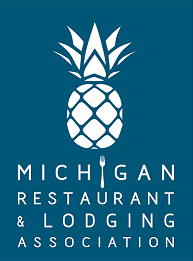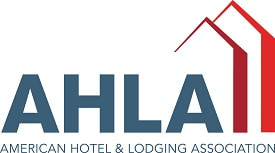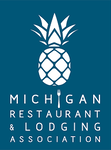
9 Pointers on Promoting Alcohol Responsibility
Adapted and reprinted from the National Restaurant Association
During the holiday season, we all count on the festive spirits, both the metaphorical and the literal kind, to boost business. Here are a few tips from the National Restaurant Association and ServSafe to help you protect your patrons and your establishment as the holidays approach:
Adapted and reprinted from the National Restaurant Association
During the holiday season, we all count on the festive spirits, both the metaphorical and the literal kind, to boost business. Here are a few tips from the National Restaurant Association and ServSafe to help you protect your patrons and your establishment as the holidays approach:
|
1. Request identification from anyone who appears 35 years of age or younger. Guests who cannot present a valid form of ID should not be given any alcohol. Because identification is the qualifying factor for serving alcohol, most minors wrongfully enter a bar using a fake or altered ID. Surveys show that over 77 percent of people have successfully used a fake or altered ID at least once. Use the following guidelines to know what to check:
|
2. Control access to the alcohol you provide.
- Use standard-size glasses and measure the alcohol in mixed drinks.
- Count drinks.
- When serving a guest previously served by a co-worker, check with your colleague to find out how many drinks the guest has already been served.
3. Offer mocktails, soft drinks, fruit juices, bottled water and coffee so that your guests have an alternative to alcohol.
4. Allow guests to have only one drink at a time. Discourage competitive or rapid drinking.
4. Allow guests to have only one drink at a time. Discourage competitive or rapid drinking.
5. Offer appetizers, snacks and other food to slow down the absorption of alcohol if you notice a guest showing signs of intoxication.
6. Look for Behavioral Cues to determine if a guest is approaching intoxication or is already intoxicated:
- Relaxed Inhibitions: Alcohol can cause people to shift their usual behavior. This might include being overly friendly, depressed and quiet, loud, or rude.
- Impaired Judgement: Signs may include complaining about drink strength after having the same drink, faster drinking, escalating drink strength, and making irrational or aggressive statements.
- Slowed Reaction Time: If a guest begins moving or talking slowly, having trouble concentrating, losing train of thought, or experiencing drowsiness, it may be time to stop service.
- Impaired Motor Coordination: This is a classic sign of intoxication. If the guest begins staggering, stumbling, swaying, spill, or slurring, it’s time to stop service and make sure the guest has a safe way to get home.
7. Make sure anyone who is visibly intoxicated does not receive any more alcohol and is not left alone. Even if the guest is not driving, an impaired guest can be injured or injure others in many ways, not just in a car.
8. When necessary, provide alternate transportation for impaired guests. Either call a shared ride service or enlist the help of sober friends to take the impaired guest home.
|
9. Serve Safely with Industry-Backed Training: At ServSafe, we prioritize your business’s security and your guests’ safety. For more information and resources about responsible alcohol serving practices, sign up for our ServSafe Alcohol training program for owners, operators and staff at www.mrla.org/servsafe-alcohol-certification. |






